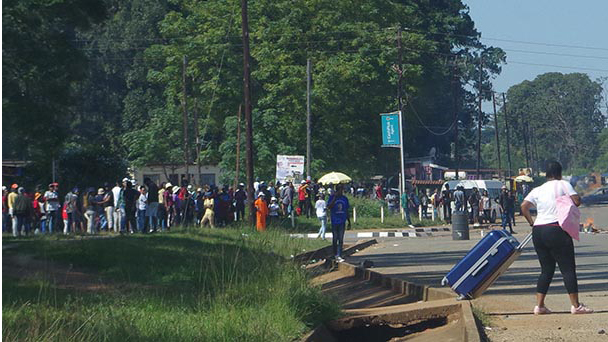
Madam,
Education minister’s warning that students who take part in strike action risk losing their scholarships deserves full support, because public funding for tertiary education carries responsibilities that cannot be ignored. Scholarships are awarded to young people with the expectation that they will focus on their studies, respect institutional rules and pursue their qualifications without engaging in actions that disrupt learning. When students abandon lectures for protests, they interrupt academic calendars and place pressure on institutions that must work to restore order rather than concentrate on academic progress. It is, therefore, reasonable that those who choose disruption face consequences that match the seriousness of their decision.
Scholarships are funded by taxpayers who expect that their contributions help build a skilled workforce that benefits the country. These funds are not gifts, but investments in young people who must show discipline and respect for systems in place. When a student accepts a scholarship, they also accept the obligation to behave responsibly within the institution. If they instead contribute to unrest, they show disregard for the opportunity they have been given. Allowing such behaviour to continue without sanction would send a message that public resources can be enjoyed without any sense of responsibility.
There is, however, an important point that should accompany the minister’s stance. Firm action alone cannot create lasting stability on campuses, unless institutions manage student grievances in a clear and transparent manner. Many disturbances arise when concerns about delayed allowances, poor accommodation, weak communication or limited academic resources are not resolved early. When students feel ignored, they often turn to disruptive methods to gain attention. A structured platform for dialogue would help prevent tensions from escalating to a point where protests occur.
This does not excuse unlawful conduct. It simply recognises that stable learning environments depend on both accountability for misconduct and proactive engagement from institutions. If campuses provide reliable channels through which students can express concerns, they are more likely to trust official processes rather than resort to marches that disrupt education. Clear communication also reduces uncertainty which often fuels frustration.
The minister’s warning should then be supported by efforts to ensure that institutions handle complaints in a timely and fair manner. When young people see that their issues are addressed, they gain confidence in the system. Those who still choose to disrupt learning after these avenues are made available would then do so with full knowledge that they are responsible for their own consequences.
Education shapes national development. Protecting academic stability is necessary for progress. The minister has taken a firm position that defends public investment in students. Combined with improved campus engagement, it will support an environment, where learning continues without needless interruption.

Education minister’s warning that students who take part in strike action risk losing their scholarships deserves full support, because public funding for tertiary education carries responsibilities that cannot be ignored.
